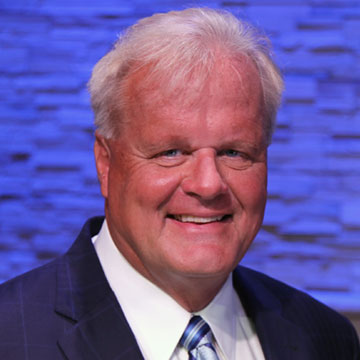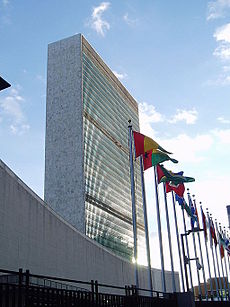
The Finished Work
The Finished Work
By Peter Youngren
Our love affair with religion is over.
From God’s point of view, all was finished before time.
AN ancient Greek king stands on a hilltop surveying a battlefield. He sees soldiers engaged in fierce battles, when suddenly words reach him that the king who leads the opposing army has surrendered. The battle has been won; there is no need for further bloodshed. In response the king cries out; Tetelestai (It is finished).
An accountant in ancient Greece has concluded a financial report; income and expenses, the balance sheet, all are in perfect order. There’s no further need to check the numbers, everything is completed. He closes the books and exclaims: Tetelestai (It is finished).
Christ’s dying declaration was Tetelestai. These three words – It is finished – is the foundation for what we call the finished work of Christ. This Greek word, Tetelestai, means more than just a task being concluded. Jesus did not merely say that death was at hand, his suffering was over, and that he had done all he could. Tetelestai means completion – total fulfillment. God’s love plan for the world had reached its zenith. The reconciliation of the world to God was fully accomplished. All that was left was for this message to be preached to everyone.
Head Fake
When we discover the enormity of what Christ has done, our love affair with religion is over. The human propensity towards fascination with rules and rituals, and with keeping score how we and others measure up against the demands of our religion become meaningless. All attempts to please a supposedly displeased deity are irrelevant. The dark view that God is vindictive, looking for retribution vanishes in the light Jesus Christ, who shows us the true nature of God. No longer is there a need to condemn ourselves or others – Christ has set us free.
In the light of Christ’s finished work we see religious observances, that we at one time thought would make us holy before God, in their true light – they are a head fake, playing with our minds. Like Saul of Tarsus, we discard what we once esteemed, and now we count it as “dung”, (Philippians 3:8).
Religion comes from the Latin word relegere -to bind up. There is a positive aspect; when we are bound together with God in a relationship of love through Jesus Christ. There’s also a negative; to be bound up in man-made traditions, ceremonies and rituals, which are of no effect. The essence of this negative type of religion is to strive to be approved by God. In contrast, the finished work means that God accepts us due to the effort of another – Jesus Christ. This makes the phrase “the Christian religion” an oxymoron; the gospel ends religion. To strive to be accepted by a holy God is null and void in the light of our acceptance through Christ.
Those who may relish the smug sense of prestige that comes from following the many traditions of religious systems find this message hard to swallow. No wonder, adherents to Christianity have tried to make it into a religion among the world’s religions, the right one, of course, but nevertheless just another religion. Unfortunately this camouflages the beautiful reality that God, because of his love, takes non-religious, sinful humans, and recognizes and accepts them in Christ.
Finished before time
The finished work of Christ was a done deal before time began. Christ is the eternal Lamb of God, slain from the creation of the world, Revelation 13:8. Before time, God purposed in Christ that we should be “holy and blameless before him in love,” (Ephesians 1:4). This is a good time to stop and read the last sentence one more time. Think about it; before all the sin and bad stuff happened to Adam and Eve, Noah, Samson and David, before Simon Peter ever denied Jesus, and before every sin and failure in your family – God purposed to present you holy and blameless, because he loves you.
Still it was necessary for this finished work to transpire in time and space. It was not a mere metaphor; Christ had to be born, crucified, resurrected, and returned to heaven at a specific time. Every event in the life of Christ was a part of the finished work played out in historical sequence.
– Christ had to descend into hell to defeat death and defeat hell. This is our guarantee of eternal victory.
– Christ had to rise again. And because he lives, we will live also. His resurrection ensures our resurrection.
– Christ had to ascend to the right hand of the Father, where he reigns until all enemies, including death, have been put under his feet.
– Christ had to pour out the Holy Spirit to empower believers to proclaim his victory, confirmed by signs, wonders and miracles.
What God had finished before time, needed to be played out “in the fullness of time,” (Galatians 4:4) .
Hesed
The cross is central, because that’s where our sins, and the sins of the world, were put away. This poses the question: What about those who lived before the cross? Did God forgive their sins? And, if so, how could God forgive sins before Christ died? The answer lies in the meaning of a Hebrew word – hesed – loving kindness. This word describes God’s nature; God has always forgiven sins because His nature is love and mercy.
The story of Hosea powerfully demonstrates God’s nature (see Jakob Wendesten’s article on page 14). But there are many other examples; Scripture overflows with accounts of individuals who experienced God’s “hesed”.
Jesus showed God’s “hesed” by forgiving sins before his crucifixion. He told Zacchaeus; “today salvation is come to your house.” Not, hang in there till after I die on the cross and then salvation will come. When the lame man came through the roof, Jesus told him; “Son, your sins are forgiven!” He didn’t say; your sins will be forgiven after my crucifixion.
Still, the cross is the ultimate depiction of God’s love; the eternal guarantee that sins are forgiven. The essence of God’s love is shown at the cross where Jesus died for our sins, (1 John 4:10). And we do well to remember that His blood was not shed only for the forgiveness of our sins, but for the sins of the whole world, 1 John 2:2.
Should we ask for God's forgiveness?
If Jesus Christ took all sins – past, present and future sins – do we need to ask God to forgive our sins today? Some propose that we must ask God to forgive our sins every day, or even several times a day, just in case we did something wrong. This leads to sin consciousness, which the book of Hebrews strictly warns against. Instead we are encouraged to live in a consciousness of Christ’s righteousness, which is the essence of our new life in Christ. Sin consciousness only leads to more sin, while keeping our focus on Christ’s gift of righteousness will produce true holiness and strong Christian life.
On the other side of the spectrum are those, who suggest that we must not acknowledge any sin, because to do so is to deny Christ’s finished work. Some contend that to ask for God’s forgiveness is an insult, since Christ already forgave all of our sins on the cross.
To me such discussions are senseless. Some may mention their specific sins and others maybe not. An addict may find it helpful to mention the area of addiction and surrender it to the Lord. A gossiper may find it helpful to acknowledge the temptation to gossip. The same goes for covetousness, lying, or whatever sin. Others may simply come to God, recognizing their need, and thank God for the forgiveness provided through Christ. No one is able to list all their sins anyhow. What about sins of omission, what about things you have forgotten. Some people commit sins when they’re in a drunken stupor; how would they be able to acknowledge sins that they cannot remember?
Whether we mention a specific sin to God, or we generally receive the forgiveness provided through the cross of Christ, we come to God vulnerable and open because of His unconditional love. We do not cower in fear, but we come to God boldly, full of confidence.
Regardless of our approach, the end result must be the same, that we know that God’s love has washed us clean and that He has given us power to live a transformed life. The addict is not an addict any longer, and the gossiper is not a gossiper anymore, and so on.
And how did this forgiveness of sin happen? The entire matter of forgiveness of sins has been dealt with; it is a part of the finished work of Christ. The way we approach God does not cause the forgiveness of sin to happen; Christ did that once for all.
Temptation to take credit
God's not finished with us yet
What effect does the finished work of Christ have in my life? It gives me security and boldness. My salvation has a firm foundation. It is not built on my ups and downs, but on what Christ has done.
We know that we have Christ’s righteousness and we are complete in him, but we still need to grow in the knowledge of Christ. Fears, anger outbursts, impatience and jealousy may still surface. We are perfect in Christ, but in the practical outworking of our life there is still room for changes. You know it, and if you don’t maybe your family members and friends may remind you from time to time. If you run into Taina, I give you permission to ask her how I’m doing.
Some who criticize the message of God’s grace and the finished work of Christ, suggest that those who believe in this take a careless approach to life; “ah well, Christ did it all, so I do whatever way I want.” Not at all!
We are in a process of being transformed into His image, from glory to glory. Yes, we are freed from “dead works” of religious self –improvement, but this doesn’t make us careless and lazy, but empowers us to step into the good works that God has prepared for us, Ephesians 2:10.
Our mission is clearer before us than ever before. We are not to police the world’s sins, but to bring good news of Him who conquered sin. We proclaim that people are acceptable to God through Christ, that death and hell are defeated, that religion is irrelevant, and that the whole world is welcome to receive what Christ has accomplished. It is finished, for you, for me and for everyone. Such good news must be told!
















